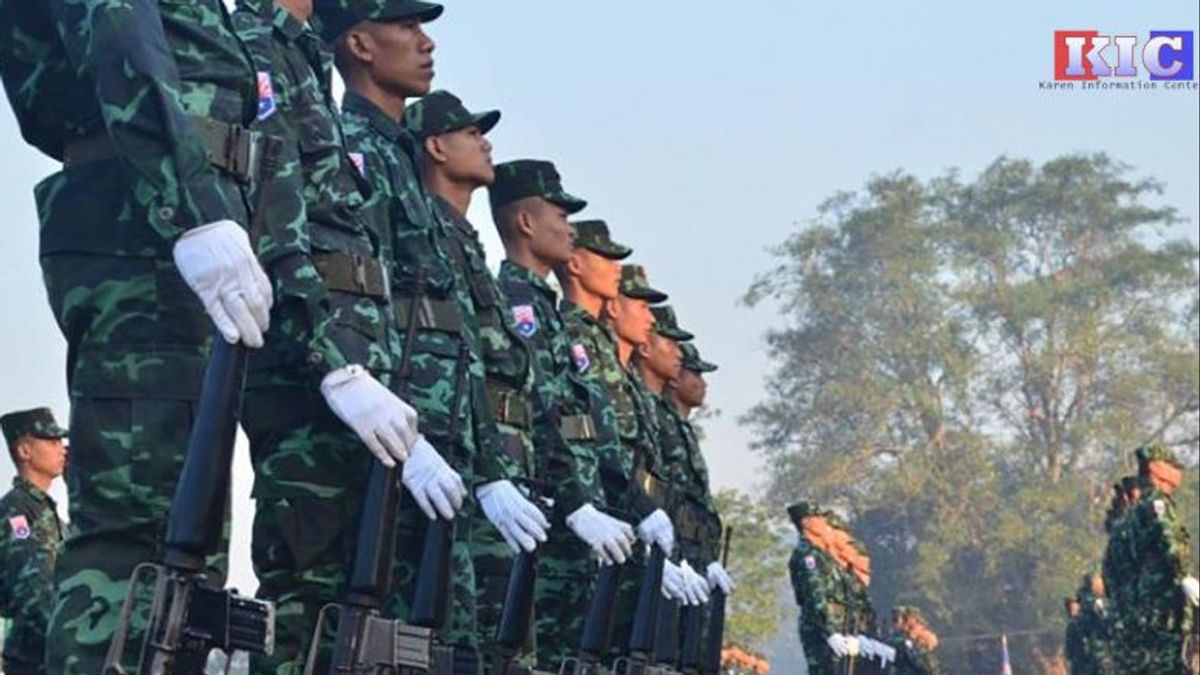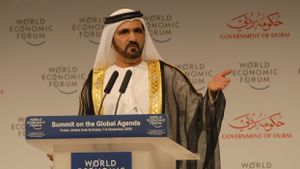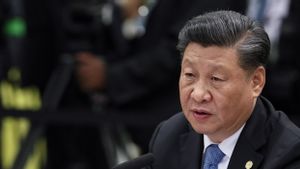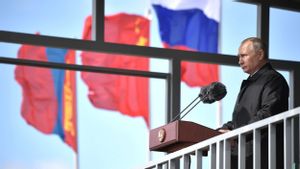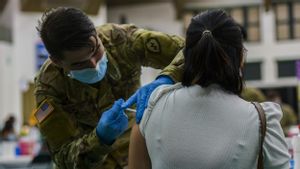JAKARTA - Myanmar's oldest rebel force wants international help to set up a no-fly zone near the Thai border, after warning there was a danger of clashes with the military regime that could result in civilians being targeted by airstrikes.
Heavy fighting broke out recently between the army of the Myanmar military regime and the Karen National Unity (KNU) forces, prompting thousands of civilians to flee to Thailand.
About 3,400 people have taken refuge in Thailand over the past few days, Thai authorities say. Thousands more are stranded on the Myanmar side of the border, waiting to cross.
In a statement released this week, KNU warned of the high possibility of airstrikes by the Myanmar military regime forces against civilians.
"This airstrike will not target military bases, but civilian bases such as schools, hospitals, homes and villages", the head of KNU's foreign department, Saw Taw Nee, told Reuters, citing his experience from previous battles, as quoted December 22.
Meanwhile, a spokesman for Myanmar's military junta did not answer a call for comment on the matter.
KNU urged the international community to identify a no-fly zone by seeking an emergency meeting of the UN Security Council.
Last month, the UN Security Council, in a rare statement approved by its 15 members, expressed concern over the violence across Myanmar and urged the military to exercise full restraint.
Meanwhile, international efforts to end the conflict in Myanmar since the February coup have been limited to diplomatic initiatives and attempts to exert economic pressure through Western sanctions.
Since the military toppled the civilian government led by Aung San Suu Kyi, the Assistance Association for Political Prisoners (AAPP) says more than 1,300 people have been killed by security forces.
However, Myanmar's military regime says figures from the AAPP, a monitoring group cited by the United Nations, are exaggerated.
The KNU agreed to a ceasefire in 2012, ending an uprising for self-determination that began soon after Myanmar gained independence in 1948. However, its forces have clashed with the army since the coup and have allowed opponents of the coup to take refuge in the territory it controls.
SEE ALSO:
The latest fighting was sparked by an army attempt to capture people in the Lay Kay Kaw area, Saw Taw Nee said.
"They came and checked the city that we allowed. However, they didn't keep their promise and arrested people that we didn't accept at all", he criticized.
KNU said three of its fighters and 15 government soldiers were killed in the clashes. Reuters was unable to independently verify accounts.
The Myanmar Coup. VOI editors continue to unify the political situation in one of the ASEAN member countries. Civilian casualties continued to fall. Readers can follow news about the Myanmar military coup by this link.
The English, Chinese, Japanese, Arabic, and French versions are automatically generated by the AI. So there may still be inaccuracies in translating, please always see Indonesian as our main language. (system supported by DigitalSiber.id)
